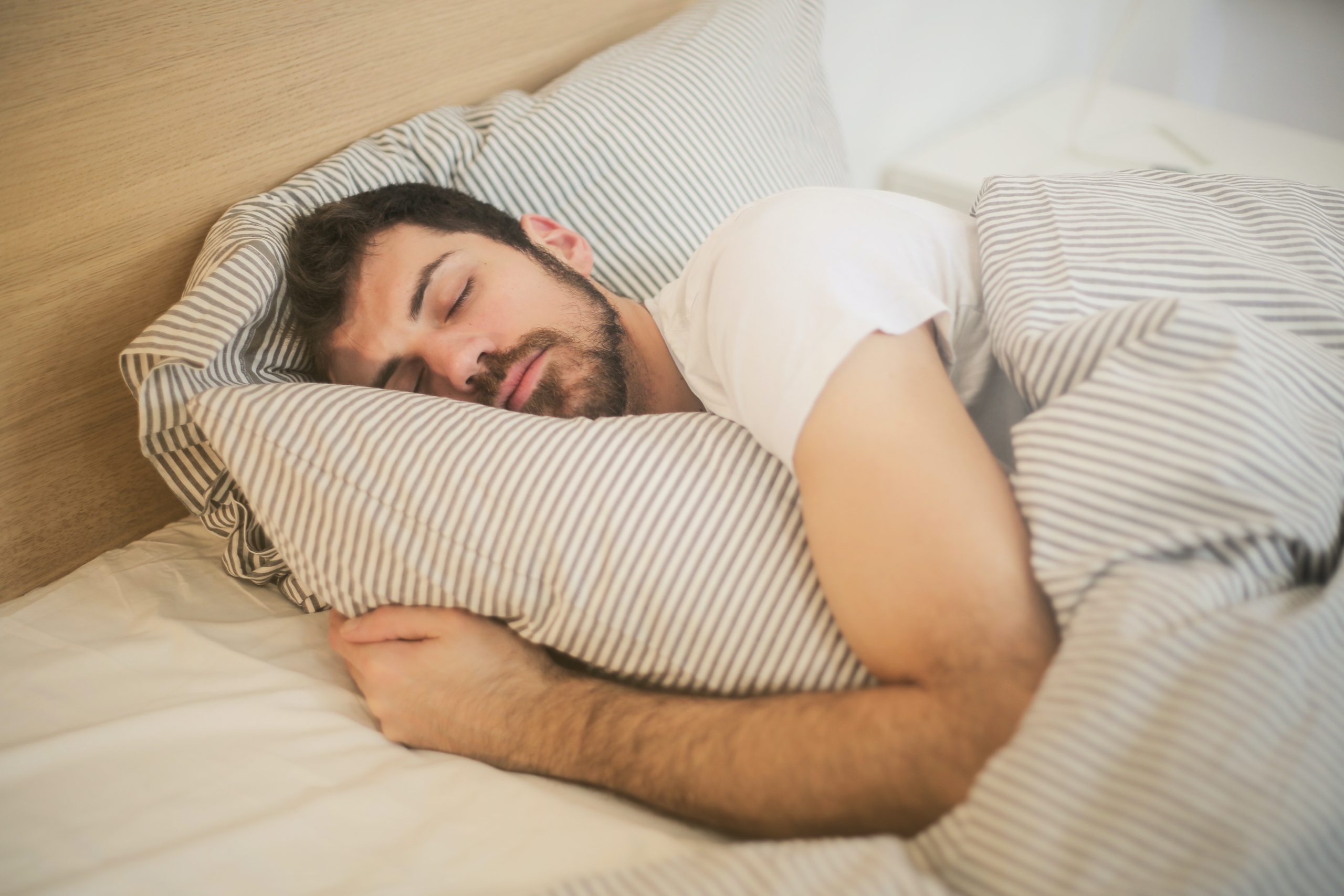Shoulder Pain When Sleeping? Here’s What To Do

“Why does my shoulder hurt? All I did was sleep!”
Here’s the reason behind shoulder pain when sleeping (and what you can do about it).
You want to wake up feeling refreshed and ready to greet your day but instead, you wake up feeling groggy and uncomfortable. That pain in your shoulder kept you awake again and to make matters worse, it doesn’t seem like it will improve at all today.
Experiencing shoulder pain after sleeping is a common complaint, but that doesn’t mean that it’s normal—even as you age.
Let’s get to the bottom of shoulder pain when sleeping, including how you can get rid of it and go back to living pain-free.
We Offer Same-Day Appointments
Why Do I Get Shoulder Pain When Sleeping?
You’re sleeping on a mattress and pillow. You’re not doing heavy lifting. So why does your shoulder feel so stiff and achy in the morning?
A variety of shoulder conditions can lead to discomfort after sleeping.
-
-
-
- Rotator Cuff Injury – The various muscles surrounding your shoulder come together to one tendon, known as the rotator cuff. These tissues are designed to hold the shoulder in place as well as move your arm but overuse can lead to injuries (such as a rotator cuff tear).
- Shoulder Bursitis – Bursitis occurs when the bursae—fluid filled sacs that cushion the joint—become inflamed. It may hurt to move or even press on your shoulder.
- Osteoarthritis – Another common issue affecting the shoulder: osteoarthritis. As the cartilage breaks down, bones rub against each other, making movement extremely painful.
- Frozen Shoulder – Those who have had a recent injury or surgery may have to keep their shoulder immobilized for a long period of time. This can cause the surrounding ligaments to thicken and become stiff, reducing your range of motion.
- Pinched Nerve – If your pain is accompanied by numbness, tingling, or a “pins and needles” feeling, this could be due to a pinched nerve from a misaligned joint.
-
-

-
-
Watch Your Sleep Position!
Curling up in a cozy bed might be your favorite part of the day, but there’s a good chance it could be contributing to your shoulder problems.
According to an article in Nature and Science of Sleep, more than half of the population are side sleepers. This sleep position might be comfy and cozy, but it may also be causing you pain.
While it may seem like a simple ball-and-socket joint, the shoulder is a very complex mechanism, made up of a variety of bones, ligaments, muscles, nerves, and blood vessels.
When you lie down on your side, this forces your shoulders to roll forward, putting pressure on the entire joint. The muscles that move your shoulder blade, or scapula, are stretched, while the muscles in your chest are tightened. This can pinch the major nerves and blood vessels that lie between your shoulder and rib cage.
The longer you spend in this position, the worse your shoulder pain may get.

Treating Shoulder Pain
If your shoulder pain is caused by improper sleep posture, the simplest treatment is changing how you sleep. Avoid sleeping on your side to relieve pressure on the shoulder and prevent developing a more serious condition (such as those listed above).
Stretching before bed can also help improve your range of motion and make your shoulder more flexible.
If you just can’t break the habit of side sleeping, make sure your mattress and pillow offer plenty of support. Sleeping with a pillow between your arms can also help.
For more long-term relief, however, there’s a better treatment for shoulder pain that addresses your problems at the source: chiropractic care.
Chiropractic Care For Shoulder Pain
Chiropractic adjustments are a great alternative to time-consuming physical therapy and the side effects of anti-inflammatory medications.
By restoring your shoulder joint to its proper position, chiropractors can help relieve pressure on surrounding nerves, reduce tension in the muscles, and allow your body to heal itself naturally.
As your body becomes used to being properly aligned, staying in that position—even while asleep—will get easier.
In addition to manual chiropractic adjustments, most chiropractors offer a plethora of additional treatments, such as decompression therapy, medical massage, and more.
Conclusion
Finding relief from your pain so you can get through your day (and get a good night’s sleep!) starts with getting your body in order.
At Oviedo Chiropractic, we offer total body treatments that are designed to reduce uncomfortable symptoms by treating your pain at its source. In addition to two licensed chiropractors, we also have a full staff of massage therapists who are able to perform a wide range of treatments.
Schedule an appointment today so we can take this burden off your shoulders.
-

